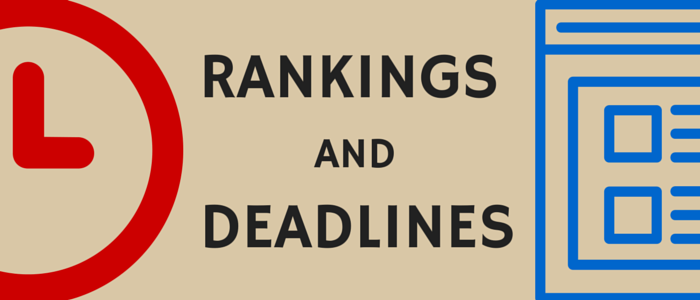
Rankings and Deadlines Don’t Mix
Is it realistic to provide a static deadline to get your site ranking?
Unfortunately, no.
Although it would be nice, the truth is that there are too many things in play, that SEO is changing literally every day, and that the biggest search engine in the game, Google, is constantly keeping us on our toes. So, stating that, “This site will be ranking on Google’s first page within 1 month,” sounds nice, but it just isn’t likely.
In a fast-paced and results-driven world, people like timeframes and static dates attached to a goal. The problem, however, is that SEO is a fickle field, with many variables to account for and a constantly changing set of guidelines. Therefore, providing a definitive date to get your website ranking is next to impossible.
There are loads of variables in this game, but keywords, location, and site structure are some of the main players to keep in mind.
I Got 99 Keywords but I can’t Rank for 1
Keywords are the infinitely important term that is the guiding factor in everything pertaining to SEO. It all starts with ranking for a keyword in order to show up higher on a search engine result page (SERP). This then drives your web traffic up, which leads to a high number of users who convert (purchase your product or services). That’s the basic idea, but it’s much easier said than done.
The competitiveness of a keyword is also an important factor to consider. Every dentist would like to rank for, well, “dentist”. But that’s a very broad term, and there are a lot of dentists out there, especially when considering where your practice is located. But more on that below. When choosing a keyword, things like location and competition are both factors that need to be accounted for.
If you really want to rank for a broad term like “dentist”, you have to work from the bottom up. Place “dentist” as your core keyword at the bottom of the keyword tree, and then build up with more specific terms like “family dentistry” or “emergency root canals.” That way, your focus is narrowed, and the competitiveness of your keyword is less saturated.
Ranking and Location
Location and business go hand in hand. For instance, an Italian restaurant in the middle of Little Italy sounds great on paper, right? But then you look around and see that the streets are lined with similar businesses, pasta galore. Not so great. SEO and location work the same way. Ranking for a term like “dentist” would be great. Just think of the potential patients; every time someone had a toothache, your website would be among the first seen.
But it’s not that simple.
The location of your business has to be taken into account. If there are several dentists in the area to compete with, a keyword has to be chosen more carefully. That’s where long tail keywords come in. These phrases are more narrowly focused (compared to “dentist”) and catch users further into the conversion cycle. Meaning, someone searching for “family dentistry in Orange County” is more apt to view your site and book an appointment than someone searching for “dentist”. What dentist?
A Newer Site Structure is an SEO-friendly Site Structure
Technology and the Internet are constantly evolving, but that doesn’t mean every website evolves with it. Some websites are based on older, outdated site structures, like Joomla or Squarespace, which makes it more difficult to implement SEO techniques within the websites.
WordPress, on the other hand, is newer, more user-friendly, and allows both the site’s proprietors and SEOs alike to work on it without the technical know-how needed to maintain its predecessors, like Joomla.
Setting a Plan of Attack
So the moral of the story is this: setting a deadline to score a high SERP position isn’t realistic; the process is a little more tricky than that. But the good news is you can always set attainable goals while implementing a thorough plan of attack. And that’s where we come in.
For help on developing a strategy to boost your website’s visibility and conversion rate, contact us. We’ll work with you to compile the keywords, research the competition in your location and optimize your site structure.




